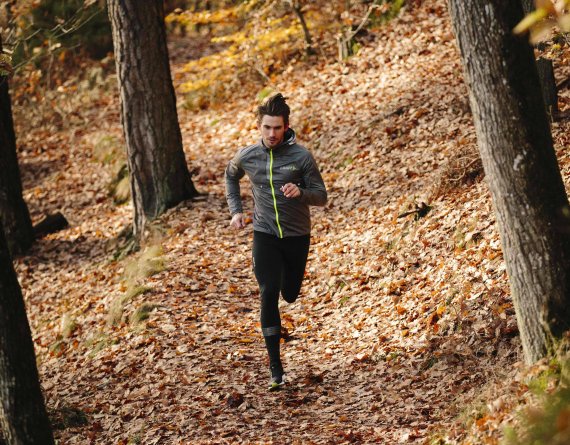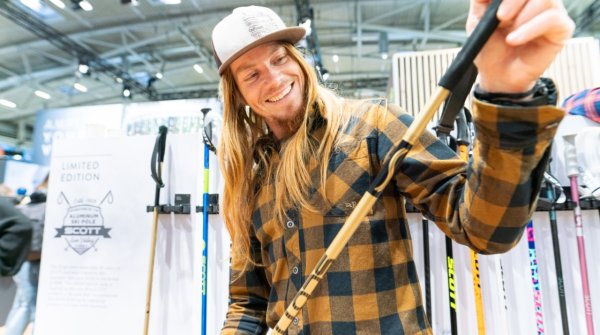
On the podium at OutDoor by ISPO: Stefan Mohr, Managing Director of Pyua, Jan Lorch, Chief Sustainability Officer at Vaude, David Ekelund, CEO of Icebug and Guillaume Linossier, founder of Saola Shoes.
Jan Lorch can look back on many years of experience and expertise in this field. "We've been on the road for ten years," says Lorch, "in all areas of the company, and I believe it's the only way to run a company in the future."
The biggest problem in the early years: "Today, sustainability is almost mainstream. At that time we first had to convince everyone in the company of the necessity. And then many questions came up: 'Are you serious? Margins will go down for now? Yeah, how much? And for how long?' And I had to say, "I don't know."
In the meantime, many problems have been solved, says Lorch, now he fights the absurd excesses of over-consumption, pais attention to the full transparency of the supply chain and educate retailers on this important topic.
David Ekelund has set himself a very special hurdle with his Swedish company Icebug: The company has produced outdoor footwear since 2001, now the company set the goal to become completely climate positive by 2020, supported by the UN and its "Climate Neutral Now" initiative. According to Ekelund, Icebug is not only well on schedule, but already achieved the goal: Since the end of February 2019, the company has been offsetting more emissions than it produces.
"When it came to sustainability, shoes were under the radar for a long time," says Ekelund about an industry that worked a lot with oil-based materials. Ekelund continues: "The fact that we had already invested a lot of time in the topic of sustainability in the past years was helpful. But we didn't expect it to be that easy. When we made that decision, it was a step into the unknown. We didn't know it would cost us 20 cents or 20 euros per shoe."
"We want to achieve the greatest possible effect with this action, and that is only possible if others follow us. If we manage to be climate positive, most brands around us can be - if they really want to. What we want to offer? A better choice. And we need a change: from consumer to user."
Sustainability in the Outdoor Industry: From Products Made from Plastic Waste to Sustainable Exhibition Stands
His colleague Stefan Mohr, who last autumn also bought the ski clothing company Pyua with his sports investment company Spin Capital, sees sustainability as "a game changer for all industries".
He believes that "advertising with unsustainable products will soon no longer be allowed" and suggests a tax on such products: "It would have effects quickly." The Pyua brand manufactures almost one hundred percent of its products from recycled materials, which Mohr sees as having great growth potential.
The shoe manufacturer Saloa, founded by Guillaume Linossier in 2016, is following a similar path. Its mission: eco-design using as much biobased recycled material as possible. After all, the shoe industry is the world's largest polluter after oil and gas.
And so Saloa makes shoes from old plastic bottles, cork, algae foam and organic cotton. "We're only in our second year, but we see this commitment to the environment as our flagship."
 Sustainability4 tips to Green Deal-compliant packaging
Sustainability4 tips to Green Deal-compliant packaging
- Awards
- Mountain sports
- Bike
- Fitness
- Health
- ISPO Munich
- Running
- Brands
- Sustainability
- Olympia
- OutDoor
- Promotion
- Sports Business
- Textrends
- Triathlon
- Water sports
- Winter sports
- eSports
- SportsTech
- OutDoor by ISPO
- Heroes
- Transformation
- Sport Fashion
- Urban Culture
- Challenges of a CEO
- Trade fairs
- Sports
- Find the Balance
- Product reviews
- Newsletter Exclusive Area
- Magazine

















